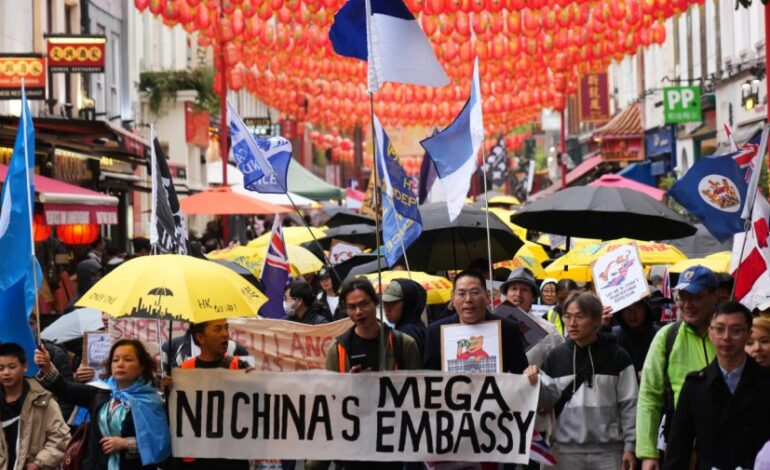UK Government Urged to Confront China’s Growing Influence

Concerns regarding China’s activities in the United Kingdom are escalating, prompting calls for action from the Labour Party. With reports highlighting China’s increasing assertiveness, opposition leader Keir Starmer is urging the government to adopt a firmer stance on diplomatic and economic relations with Beijing.
Recent developments have revealed that China is allegedly operating without sufficient oversight in the UK, particularly in areas related to national security and human rights. In a speech delivered in October 2023, Starmer emphasized the need for the UK to defend its democratic values and protect its interests from external pressures.
During the speech, Starmer pointed to numerous instances of Chinese influence that have raised alarms among lawmakers. He referenced specific cases where Chinese investments have posed risks to critical infrastructure, suggesting that these dealings could compromise national security. The Labour leader called for a comprehensive review of existing agreements with China, particularly in sectors that are vital to the UK’s economic stability.
The UK has historically maintained a complex relationship with China, balancing trade interests with concerns over human rights abuses. Starmer’s comments reflect a growing consensus among political leaders that the UK must reassess its approach. The House of Commons has witnessed increasing debates on this issue, with some members advocating for stronger legislative measures to curtail potential threats posed by foreign investments.
Furthermore, Starmer highlighted the importance of aligning UK foreign policy with its allies. He noted that countries such as the United States and Australia have taken significant steps to counter Chinese influence, suggesting that the UK should follow suit. This aligns with broader discussions on international security and economic partnerships, particularly in the wake of geopolitical tensions.
The Labour Party’s position is supported by various reports from think tanks and academic institutions, which have examined the implications of Chinese investments in the UK economy. According to a recent report by the Henry Jackson Society, foreign investments from China in critical sectors could lead to vulnerabilities that might be exploited in times of conflict.
In light of these concerns, the Starmer government is under pressure to respond decisively. Stakeholders from various sectors, including technology and infrastructure, are closely monitoring developments. There are calls for transparency and accountability in relation to foreign investments, as well as a reassessment of the UK’s foreign policy framework.
As China continues to assert its influence globally, the UK’s response will be critical in shaping future diplomatic relations. The Labour Party’s emphasis on a more proactive approach could signal a pivotal shift in how the UK engages with one of its largest trading partners.
This situation underscores the need for the UK to navigate its relationship with China carefully, balancing economic interests with the imperative to safeguard its national security. With the next parliamentary session approaching, discussions around this topic are expected to intensify, focusing on establishing a coherent strategy that addresses both immediate concerns and long-term implications.






